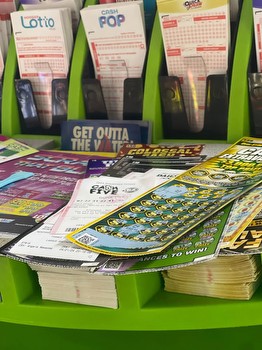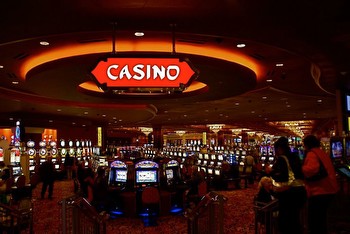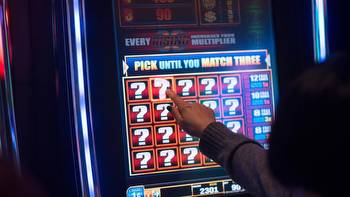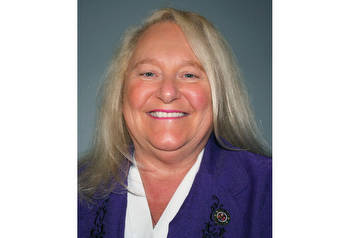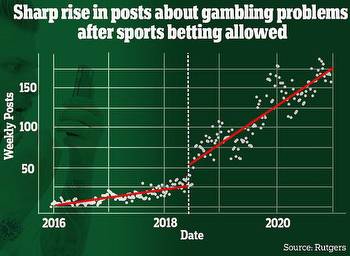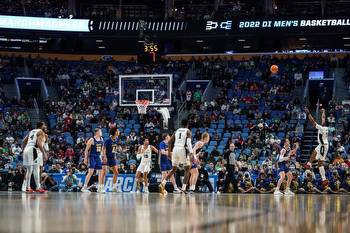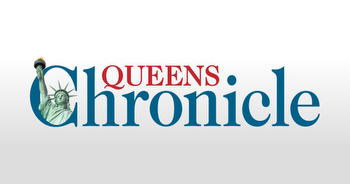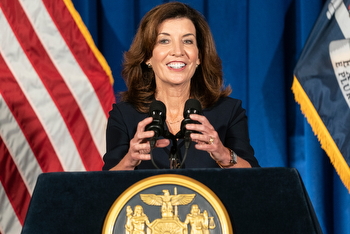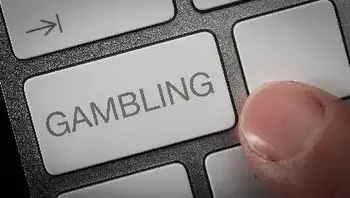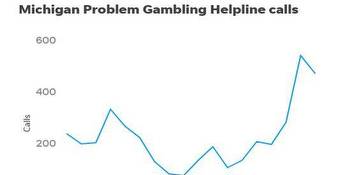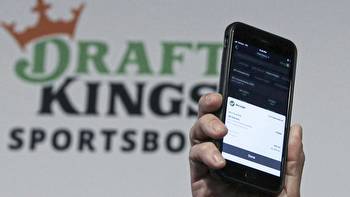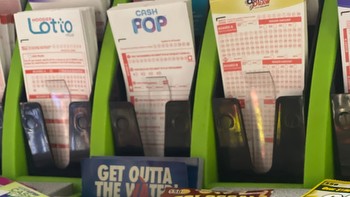Online gambling is a problem
New York state allowed mobile sports betting to begin Jan. 8, and during the first 23 days, all the headlines stated there was $1.26 billion wagered, and there was $113 million in revenue.
The gambling industry and gambling providers in New York — as well as some lawmakers — were extremely pleased with the opening of mobile sports betting in New York.
“Betting volume is outstripping even the most optimistic projections so far,” said one analyst, Mike Mazzeo.
Adam Greenblatt, chief executive of BetMGM, said, “Yes, delighted with how it’s gone. Look, we’ve broken all of our records. It was the best first day of any live launch. We broke records for most registrations, for most first-time deposits, for bets, for handle.”
In all the excitement, we seem to have forgotten the second part of the equation: For there to be $113 million in revenue, there must be $113 million in losses. This fact is always overlooked, and needs to be part of any discussion regarding gambling revenue. New Yorkers lost $113 million in just three weeks, which is $4.9 million in losses a day.
If that trend continues, over the course of a year, that will be $1.8 billion in losses.
With all the advertisements and continual discussion about odds, over/under, parlays, favorites/underdogs — it is easy to see how these losses came to be. We have been bombarded nonstop with celebrities enticing you to sign up with their company, and if you do sign up, they will give you anywhere from $250 to $3,300. If the goal was to sign up as many individuals as possible, they succeeded.
According to GeoComply, there were 770,840 accounts set up by individuals who were new to legal online sports betting in the first two weeks — a statistic GeoComply says it has never seen in other states.
You could not imagine this type of recruitment — this behavior — occurring in any other area and receiving so little discussion. Imagine the uproar if we tried to do the same with alcohol promotion. If we advertised and said, “If you sign up, we will give you between 250 mL and 3,300 mL in alcohol, which you can consume risk-free,” yes, there would be an uproar.
We do not have to guess where this might lead. Granted, we did not see the crack cocaine crisis coming, and did not see the opioid crisis causing so much destruction and loss of life. But we can see this coming.
Some 20, even 10, years ago, if we had known what the opioid crisis would look like in New York, we surely would have taken measures to avoid the epidemic of death and family destruction we are facing today.
I think we can all agree we would have rather invested in prevention — educating prescribers and pharmacists, funding law enforcement, developing other solutions to pain management — than to be dealing with the aftermath.
We have that opportunity when it comes to sports betting, and I hope that we will consider the outcomes that are potentially facing New Yorkers because of legalization and expansion.
Unlike the crack cocaine and opioid crises, we have the chance to prevent a problem gambling crisis. The time is now to implement a universal prevention program to address this issue. I urge New York state to invest more in educating parents and youth, creating policies that keep the environment safe, and enforcing those policies.
I urge New York state to invest in public awareness campaigns that show the realities and risks of gambling.
I urge all New Yorkers to take problem gambling seriously, and to also know that your voice matters. We need to act if we are going to keep things safe for our children and our grandchildren, and we need both a state and community response to make that happen.
We must address this issue in real time, and not one or two years down the road. The clock is ticking because now that mobile sports betting has started, there are serious discussions regarding the addition of three downstate casino licenses. And right after that will come betting kiosks at racetracks and arenas like Madison Square Garden.
If New Yorkers are going to lose more than a billion dollars a year, we need to invest in preventing problem gambling throughout the state. Currently, there is $6 million from mobile sports betting set aside to address problem gambling, and we know that is not enough. There needs to be an additional $15 million to address this issue.
All of that — $21 million — is less than 2 percent of total losses.
Jim Maney
The author is executive director of the New York Council on Problem Gambling









